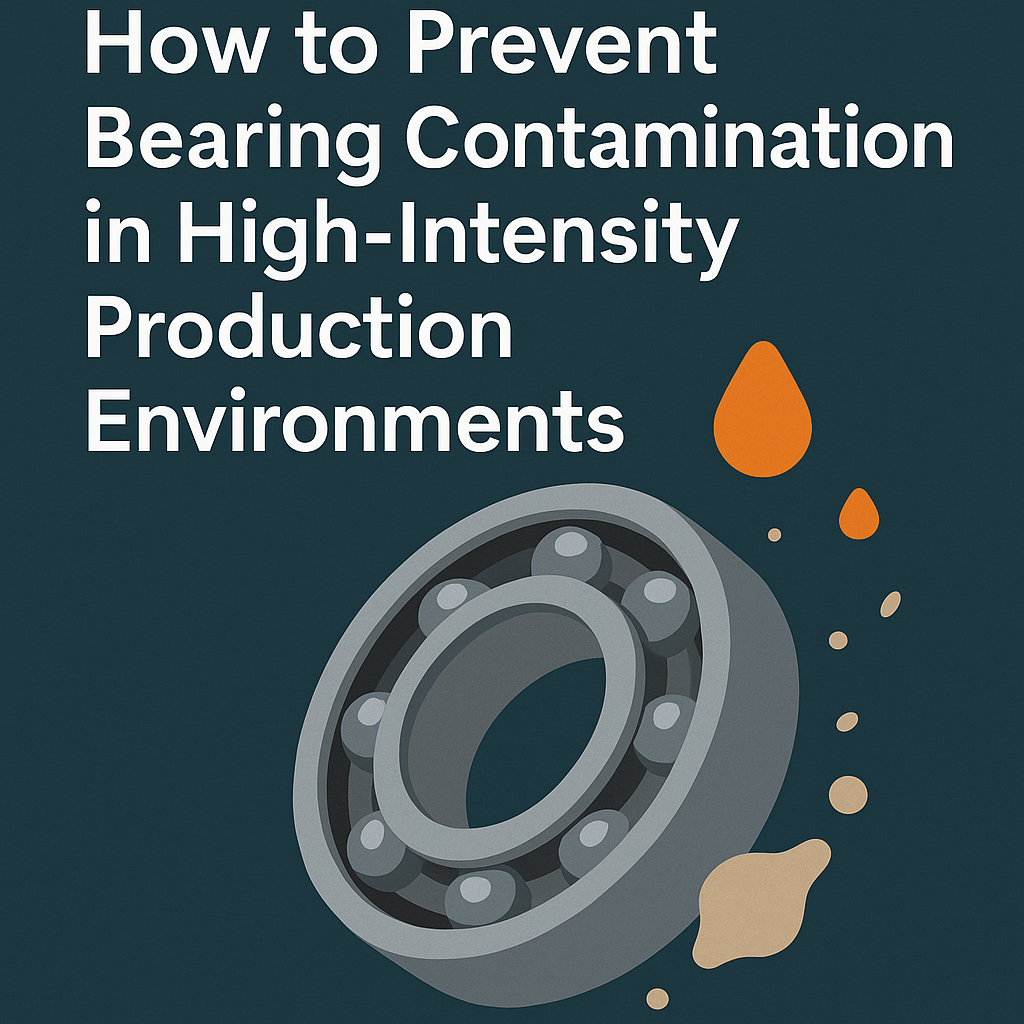In high-intensity production settings such as food processing plants, steel mills, chemical facilities, and automated assembly lines, bearings are subject to extreme operating conditions. Contamination from dust, liquids, metal particles, and aggressive chemicals is one of the leading causes of premature bearing failure. Proper management of these risks is essential to ensure machine reliability and operational continuity.
The Dangers of Contamination
Contamination occurs when foreign particles penetrate the interior of the bearing, damaging the rolling elements and raceways. The consequences include:
🔹 Increased friction and wear
🔹 Noise and vibration
🔹 Loss of lubrication performance
🔹 Reduced bearing life and sudden failures
In some environments, like food or pharmaceutical production, contamination can also compromise the hygiene and safety of the end product.
Prevention Strategies
To prevent bearing contamination, it’s essential to implement a series of targeted practices and adopt components designed for harsh conditions.
1. Use of Sealed Bearings
Sealed bearings (with contact or non-contact seals) are specifically designed to prevent the ingress of external contaminants. They are ideal for applications where maintenance access is limited.
2. Protective Housings and Covers
Using shields, labyrinth seals, and bearing housings with integrated protection helps isolate the bearing from the external environment.
3. Appropriate Lubrication
The choice of lubricant plays a key role: high-quality greases with anti-contamination properties or solid lubricants (like PTFE-based) ensure a longer protection time.
4. Regular Inspection and Cleaning
Even in automated environments, regular inspection is necessary to detect early signs of contamination. Cleaning surrounding surfaces and replacing damaged seals help prevent failures.
5. Materials Suitable for the Environment
For corrosive or high-temperature environments, choose stainless steel bearings or bearings with special coatings like ceramic or polymer-based.
Specific Sectors and Solutions
🔧 Food and Beverage Industry: Use NSF H1 certified lubricants and sealed stainless steel bearings to ensure hygiene and regulatory compliance.
🏗 Heavy Industry: In dusty or metallic particle environments, apply multiple sealing systems and continuous lubrication solutions.
🦠 Chemical Industry: Use bearings with seals resistant to aggressive agents and verify chemical compatibility with lubricants.
🚀 Automation and Robotics: In high-speed systems, low-friction seals and compact housings reduce contamination without compromising performance.
Conclusions
Preventing contamination is a critical step in preserving bearing performance and extending the life of your equipment. The choice of the right bearing, along with effective maintenance and proper protection systems, is the key to success in high-intensity production environments.
At Eurobearing.eu, you’ll find a wide range of bearings, seals, housings, and lubricants designed for maximum resistance to contamination and wear.
🔍 Explore our catalog or contact our team for personalized technical support.

